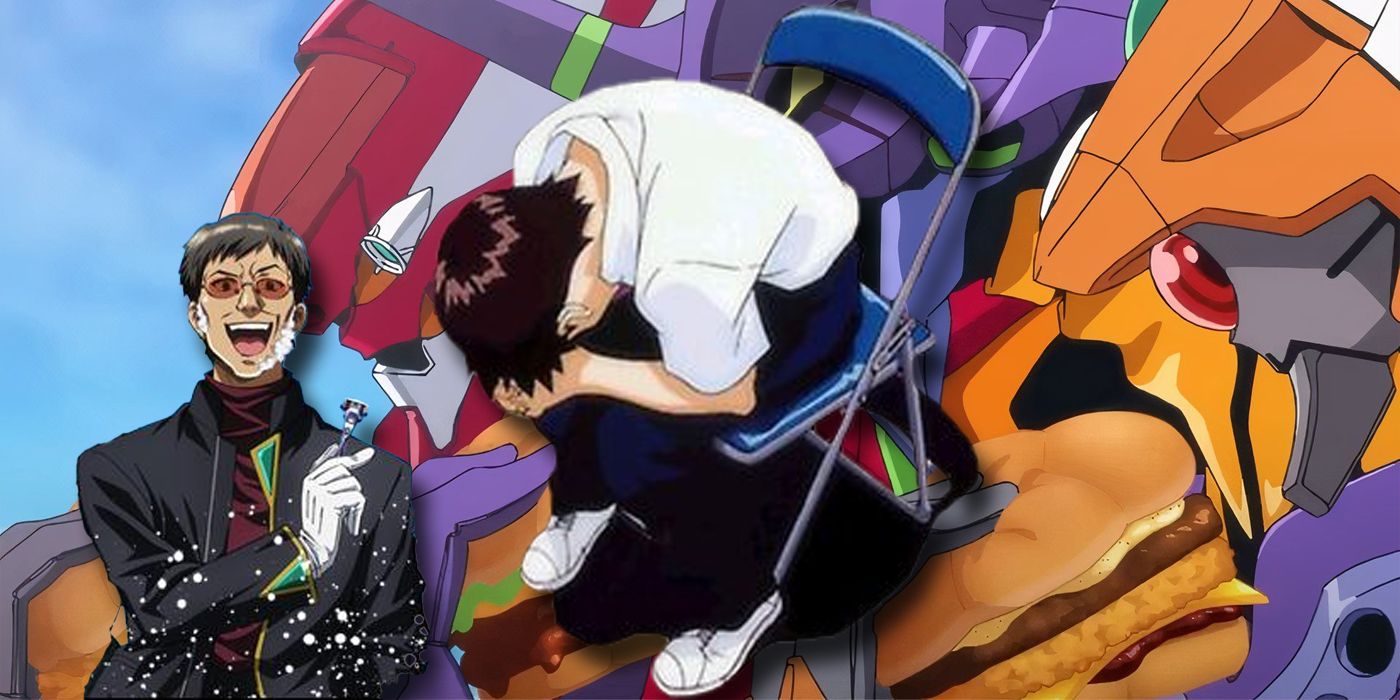
The animated series “Neon Genesis Evangelion” is highly acclaimed for its deep, thought-provoking content that tackles complex issues such as depression, suicide, solitude, and trauma. However, its widespread commercialization, with seemingly endless merchandise bearing the “Evangelion” brand, creates an odd contrast which some argue might be tarnishing the series’ reputation.
The anime series Evangelion gained rapid popularity in Japan, and it didn’t take long for merchandise offers to pour in. Initially, the merchandise was fairly standard. However, during the gap between the release of The End of Evangelion and the first Rebuild movie, when no new content was being produced, the series continued to thrive through merchandising. This enduring popularity resulted in an array of peculiar tie-in products, ranging from eye drops to fishing equipment. This brings up an interesting point: where does commercial exploitation begin to undermine artistic integrity?
Evangelion Deserves Its Popularity, and Merch is Only Logical
Popular Series Always Produce Merch, and Evangelion is No Exception
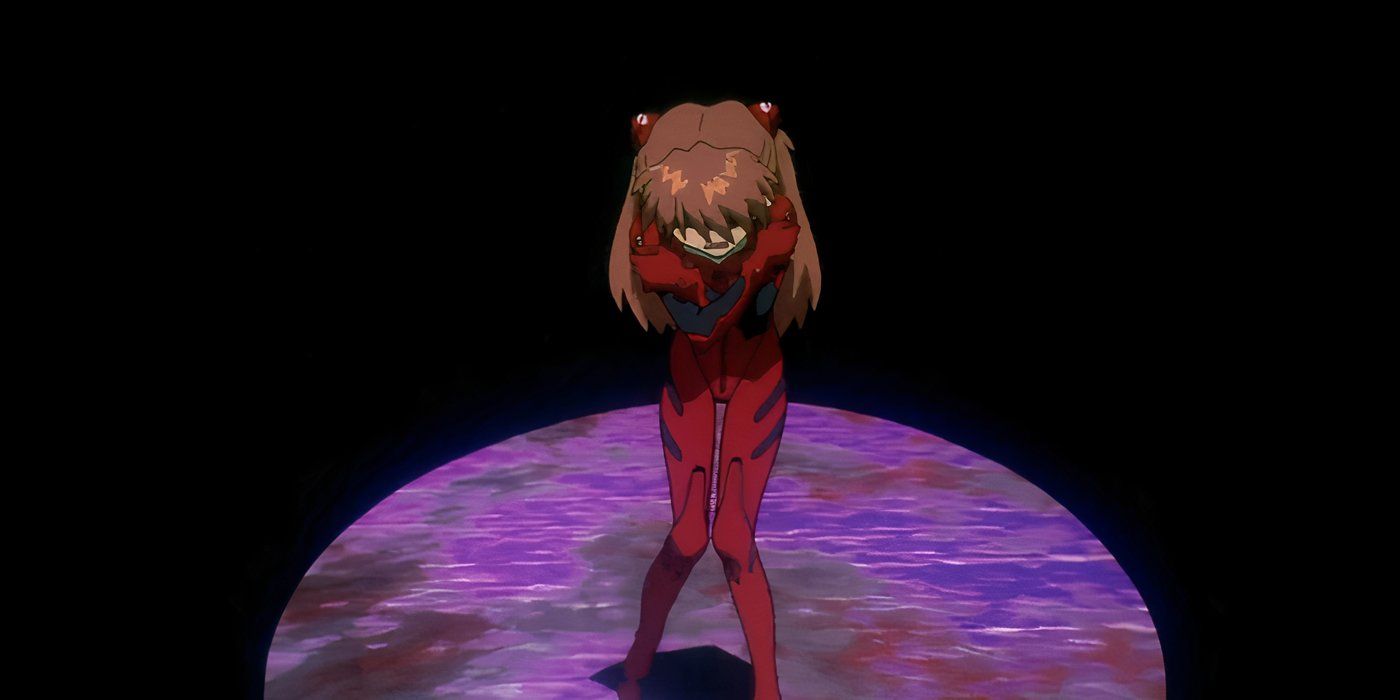
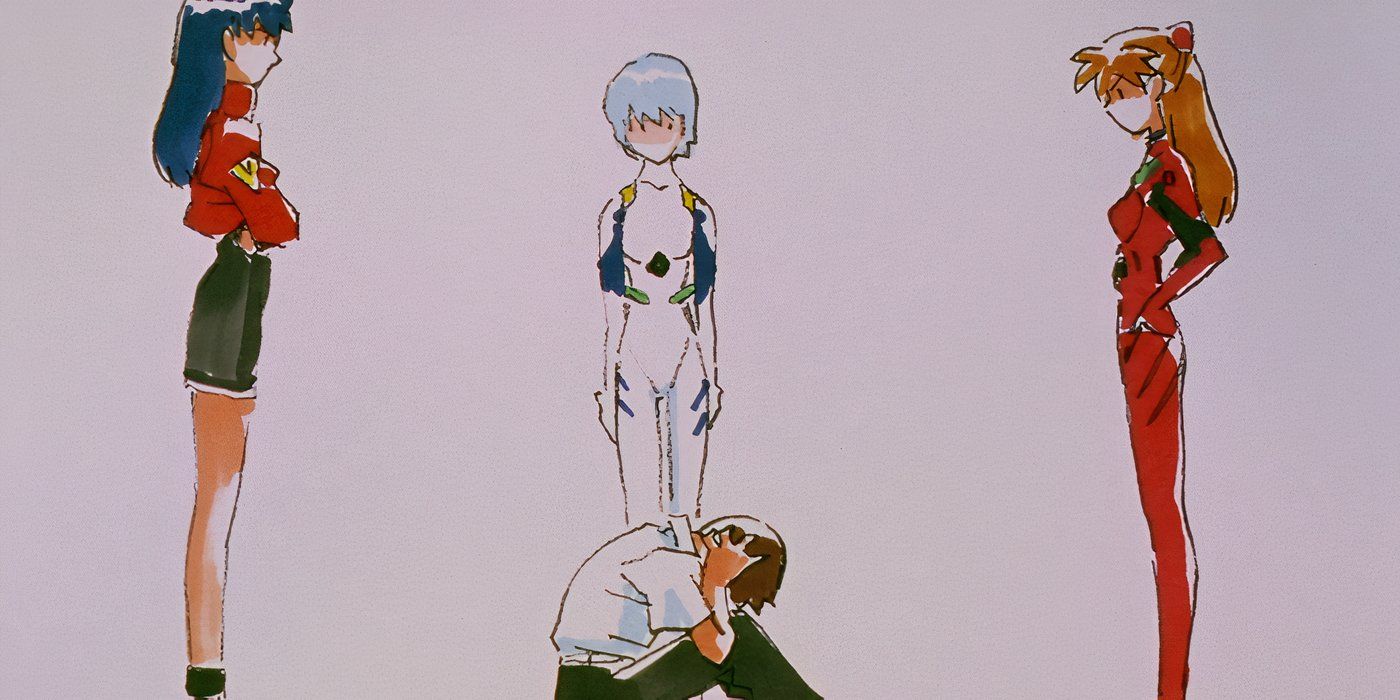
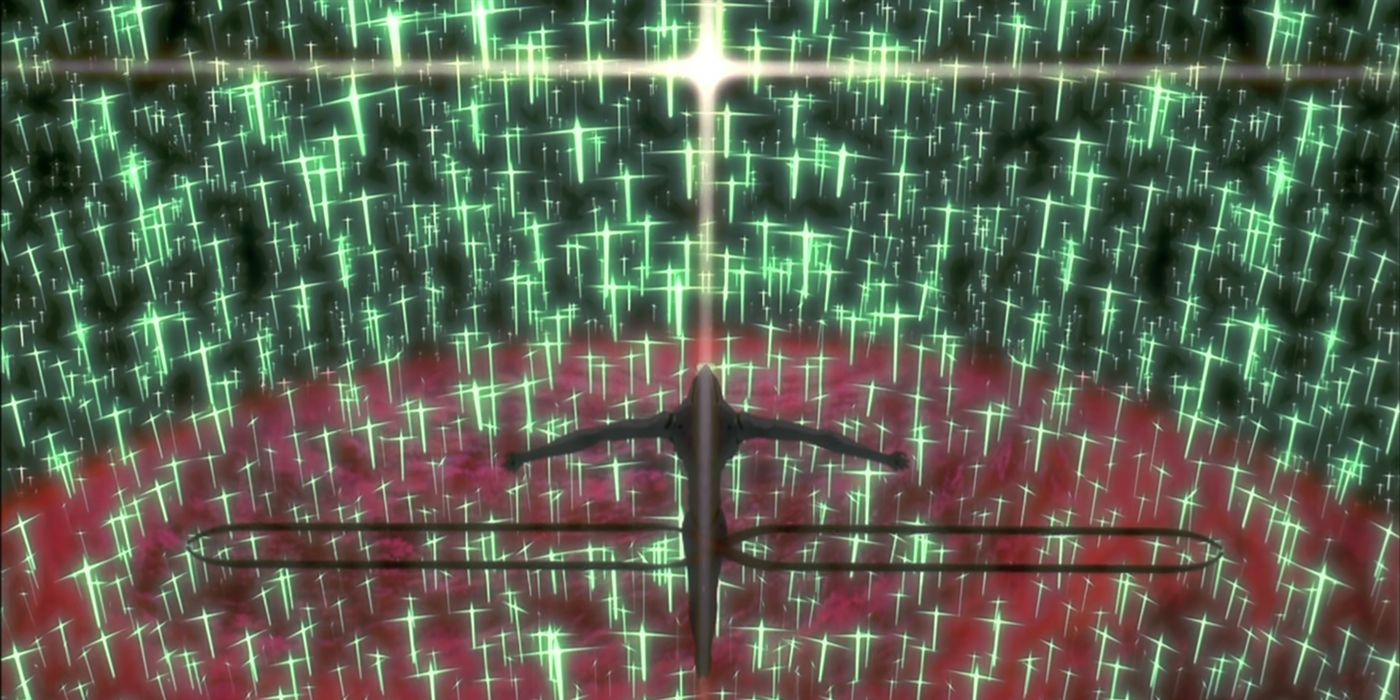
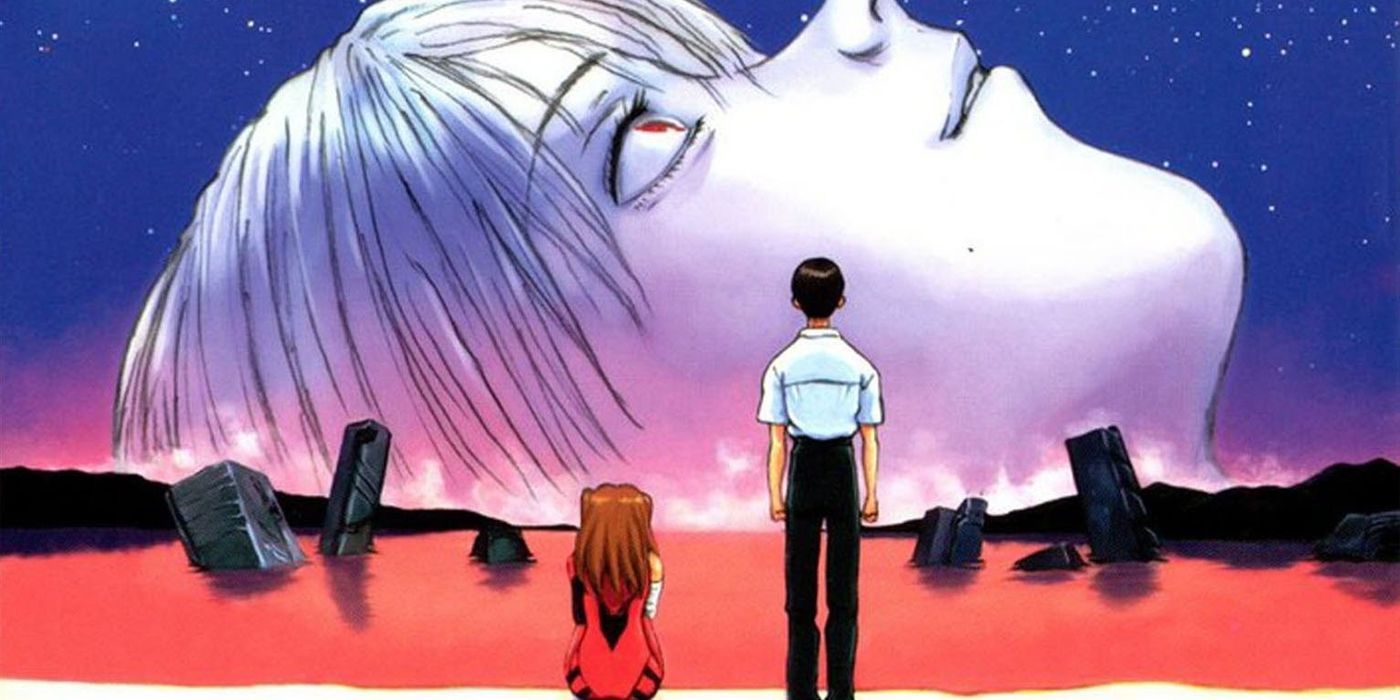
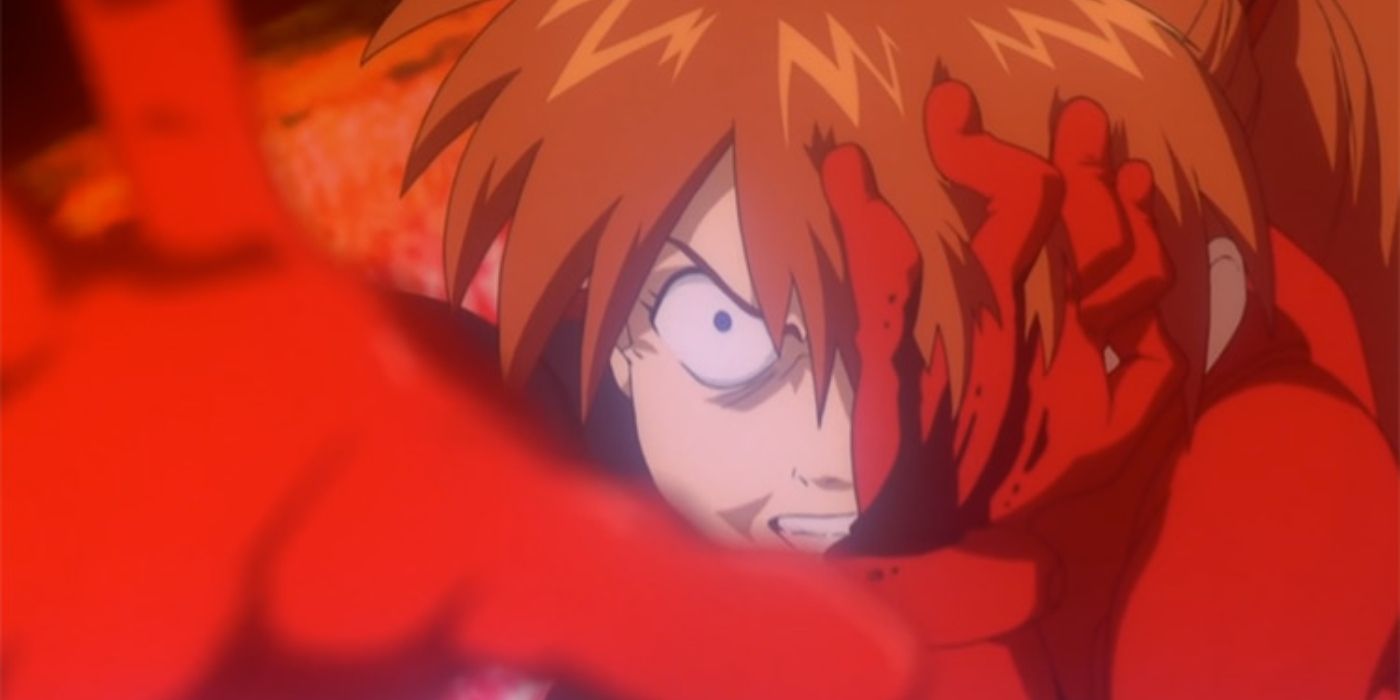
For me, Neon Genesis Evangelion was a shaping influence. I can still recall it being broadcast on Adult Swim late in the evening, and each week I would watch an episode alone in my room, frequently left stunned by what I had just witnessed. There wasn’t anything else quite like it back then, and even now, many years later, I’d argue that there still isn’t, despite numerous attempts to replicate its success. At the time, obtaining anime was a challenge as streaming didn’t exist yet, and finding anime on DVD was almost impossible for a high school student with limited funds.
Shinji, the anime protagonist, stood out from the rest due to his unique portrayal. Unlike other heroes bravely confronting danger to save friends, Shinji was plagued with depression and fear, yet compelled to act nonetheless. His character resonated deeply with many viewers, offering a more authentic depiction of what it might be like for a teenager to grapple with a world-threatening crisis. Characters such as Rei, Ritsuko, and even Gendo also had their own relatable qualities, leading me to cultivate enduring affection for much of the cast, despite their flaws and questionable choices.
It wasn’t shocking when I encountered Evangelion merchandise, such as character figurines, constructible mecha, or clothing adorned with the Evangelion logo. I had anticipated this type of merchandise and was even pleased to see it. Currently, miniature plushies of Asuka and Rei are sitting beside my TV, demonstrating that I don’t have a problem with anime merchandise in general. In fact, merchandise often covers the costs for anime production companies, making Evangelion’s abundance of merchandise a symbol of its success.
Evangelion’s Characters Really Aren’t Suited to Mascot Status
Deeply Depressed and Traumatized Characters Don’t Make Good Mascots
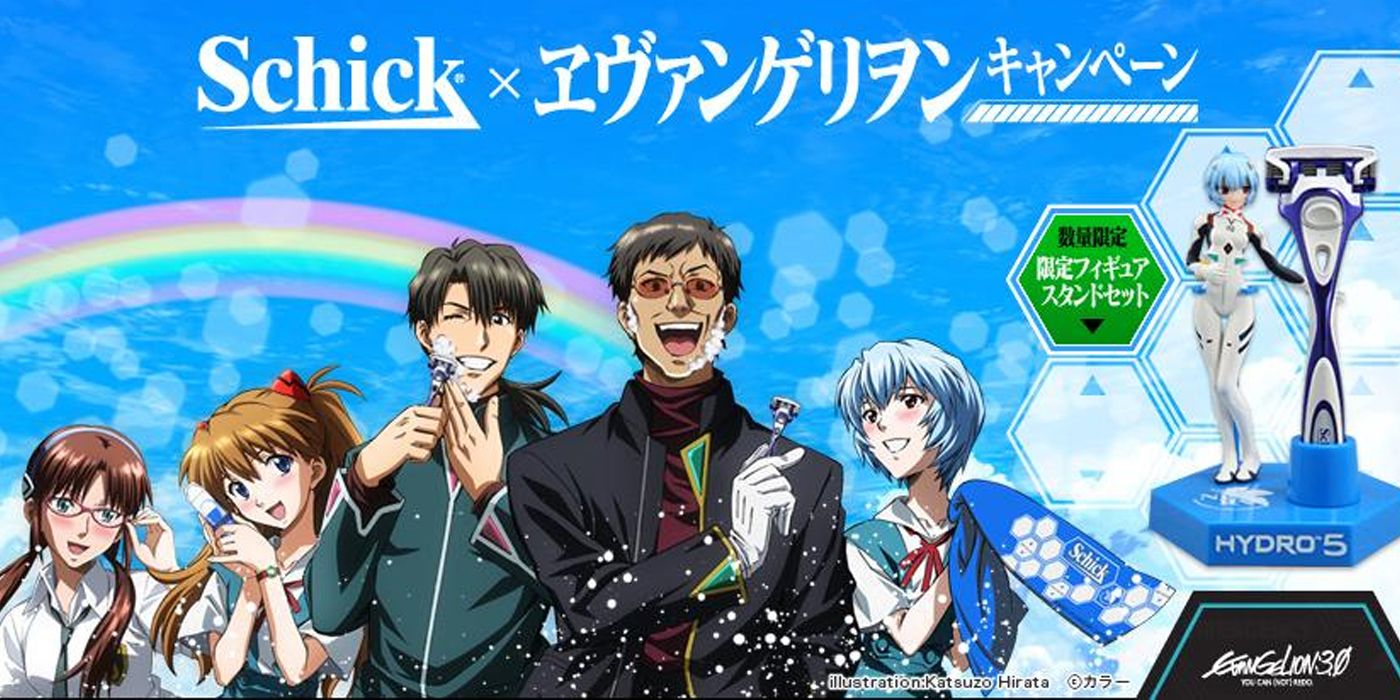
There’s a boundary artists often grapple with regarding artistic authenticity versus commercial success. This line is constantly debated among creators, and opinions vary widely, so it’s hard to find two artists who agree on where this line lies. Consequently, I made an effort not to be too critical of Evangelion‘s expansive merchandising strategy. If the series has enough fanbase to support such brand deals, then why not embrace a unique color scheme like purple and green?
It was when I encountered the 2012 collaboration between Evangelion and Schick razors that things started to seem strange. What struck me as odd was the image of Gendo Ikari, the series antagonist, smiling broadly while shaving off his chinstrap beard. It seemed almost absurd to think that resolving his issues could be as simple as using a razor. To make matters worse, all the characters appeared to have happy expressions, which felt completely out of place given their dark and complex personalities in the series. I couldn’t help but wonder if those responsible for this promotion had actually watched Evangelion at all, and how they could possibly believe that these characters were suitable representatives for selling razors.
Since then, things have taken on a strange turn, with all sorts of connections such as Evangelion military rations or the upcoming Evangelion toys at McDonald’s. Is it appropriate for a series like Evangelion to be marketing toys intended for children? And isn’t it at least questionable to have an EVA transform into something as commonplace as fast food? It seems rather disrespectful to the original content, given how far removed the advertising has become from the core product.
Has Evangelion Crossed a Line With Its Tie-in Deals?
The Series May Be Endangering Its Reputation With Too Many Branded Products
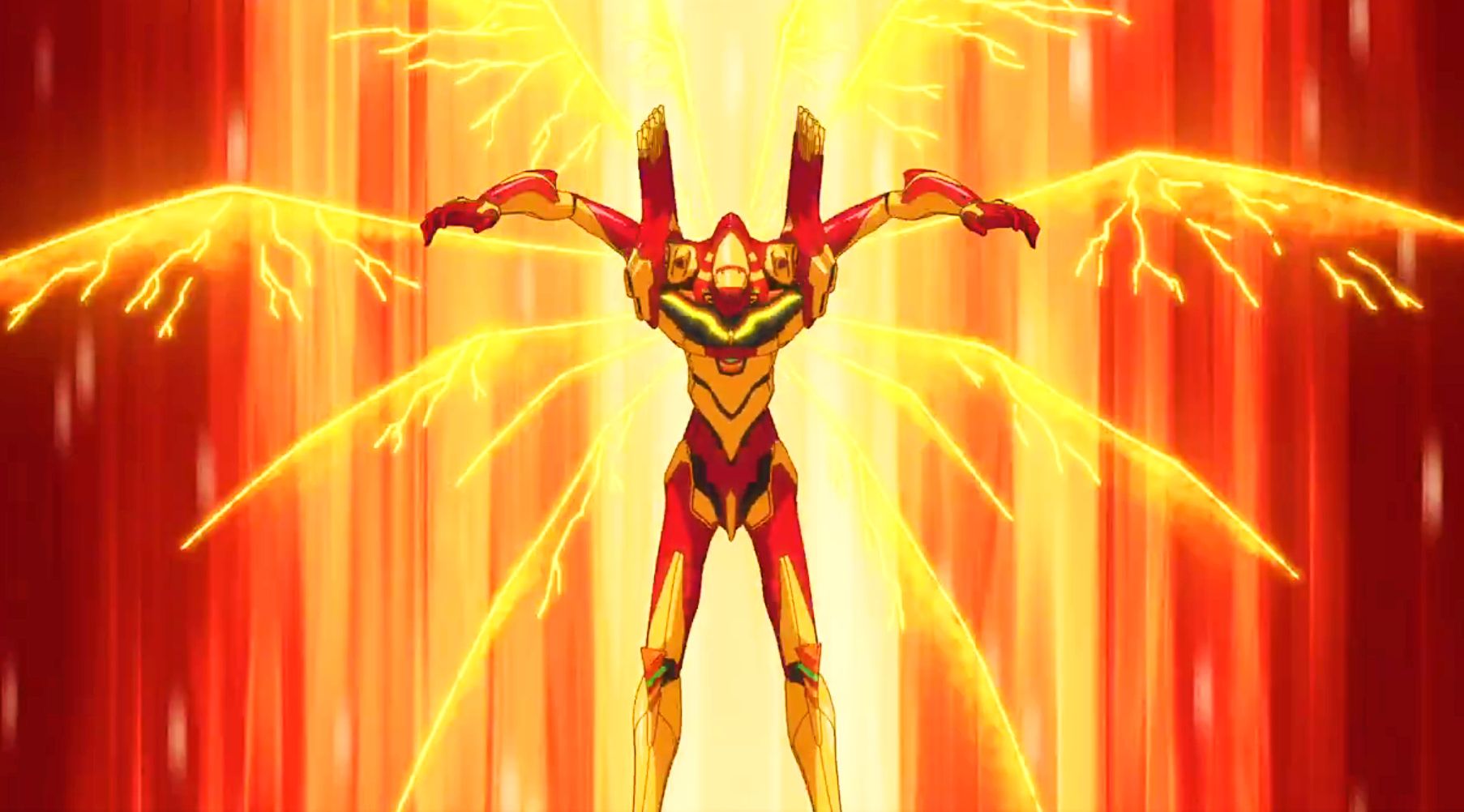
In my opinion, it can be quite challenging to persuade someone to watch Neon Genesis Evangelion when their only exposure to it is through merchandise tie-ins such as toys or promotional campaigns with companies like McDonald’s or Schick razors. To them, these items might give the impression that the series is lighthearted and lacking in depth, which couldn’t be more untrue.
The problem is that these frivolous tie-ins often depict the characters in ways that contradict their true personalities as portrayed in the anime. This can lead viewers to dismiss the series as just another product of Japanese pop culture without fully understanding its complexity and depth.
While it’s easy to brush it off by saying, “well, that’s just Japan,” there’s a genuine risk of causing harm to the franchise if people continue to judge it solely based on these superficial associations. The goal is to encourage viewers to give Neon Genesis Evangelion a chance and appreciate its thought-provoking themes and deep character development.
Indeed, it’s a genuine exploration delving into trauma, depression, and the breakdown of individuals amidst the intense stress of an apocalyptic scenario.
Currently, we can differentiate between the genuine art and commercial merchandise related to Evangelion. However, if the series continues to use its characters and symbols excessively for product promotion, there might be a time when Rei Ayanami is perceived more like a mascot, such as Tony the Tiger, rather than a complex character grappling with her own identity. This idea is quite disheartening for an ardent fan of the series who appreciates its depth and complexity.
Over time, I’ve noticed that the characters and aspects of Neon Genesis Evangelion seem to be drifting farther away from their original content. Maintaining this distance might prove challenging in the future for the franchise to thrive sustainably. It may be beneficial for Neon Genesis Evangelion to reconsider the boundaries of its merchandising to ensure the longevity and success of the series.
Read More
- Who Is Harley Wallace? The Heartbreaking Truth Behind Bring Her Back’s Dedication
- Basketball Zero Boombox & Music ID Codes – Roblox
- 50 Ankle Break & Score Sound ID Codes for Basketball Zero
- 50 Goal Sound ID Codes for Blue Lock Rivals
- LINK PREDICTION. LINK cryptocurrency
- Ultimate AI Limit Beginner’s Guide [Best Stats, Gear, Weapons & More]
- TikToker goes viral with world’s “most expensive” 24k gold Labubu
- 100 Most-Watched TV Series of 2024-25 Across Streaming, Broadcast and Cable: ‘Squid Game’ Leads This Season’s Rankers
- League of Legends MSI 2025: Full schedule, qualified teams & more
- All Songs in Superman’s Soundtrack Listed
2025-02-23 00:19